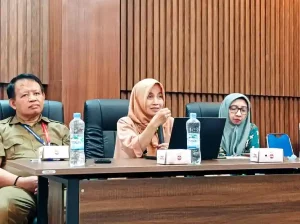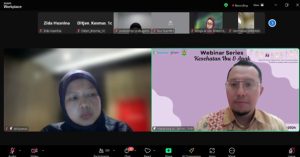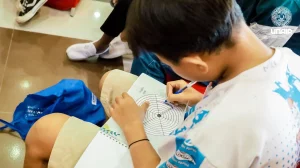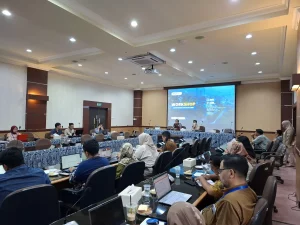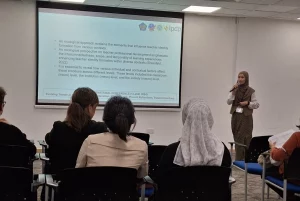Carbofuran (2,3-dihidro-2, 2-dimethyl, -7benzofuranyl methyl carbamate) is an insecticide from the carbamate group. Carbofuran is most often used and causes many poisoning incidents in humans and animals. The intensive use of carbofuran can leave residues, contamination, and poison the environment thereby reducing the population of various useful animals. Oral administration of carbofuran has been shown to stimulate Reactive Oxygen Species (ROS). Cell damage by carbofuran is associated with the formation of ROS or free radicals in the body. Target organ damaged due to the effects of carbofuran is the brain, liver, muscles, and heart.
The liver is the largest gland and is a vital organ for humans and animals. The liver is an organ that plays a role in the process of detoxifying the waste products of the metabolism of food substances, drugs, and toxic substances that enter the body. The presence of toxic substances carried in the portal vein bloodstream can cause the liver cells around the portal vessels to experience the most cell damage. The impact of ROS triggers congestion, infiltration of inflammatory cell (inflammation) and necrosis of the liver.
The lactation period is a critical period for the development of postpartum individuals because the function and organ systems are still developing so they are more susceptible to disease. Metabolites in milk coming from insecticides in lactating mothers allow the transmission of toxic substances to children. Milk that passes through the digestive system will undergo a process of absorption and will be distributed to all organs of the body including the liver. Therefore, toxic substances in milk are thought to cause liver cell damage.
Kebar grass contains flavonoids and phenolic compounds which function as antioxidants. Phenolic compounds as antioxidants have mechanisms as reducers, free radical scavengers, metal binders, and prevent the formation of singlet oxygen.
This study aims to determine the potential of Kebar grass extract in reducing the impact of liver damage in mice offspring (Mus musculus) from parent exposed to carbofuran during lactation period. 42 lactation mice (Mus musculus) used in the study were divided into seven groups, each group consisting of six mice. Carbofuran, Kebar grass extract, and vitamin C are administered orally on days 1 to 14 after birth. This group consisted of K (aquadest), P1 (carbofuran 1/4 LD50 0.0125 mg/day), P2 (carbofuran 1/8 LD50 0.00625 mg/day), P3 (Kebar grass extract 3.375 mg (0.2 ml) + carbofuran 1/4 LD50), P4 (Kebar grass extract 3.375 mg (0.2 ml) + carbofuran 1/8 LD50), P5 (vitamin C 5 mg (0.2 ml) + carbofuran 1/4 LD50), and P6 (vitamin C 5 mg (0.2 ml) + carbofuran 1/8 LD50). On the 15th day after birth, mice were sacrified and their liver taken for microscopic examination with hematoxilin and eosin staining. The scoring data were analyzed using Kruskal-Wallis and Mann-Whitney test.
The result showed significant different (p<0.05) among the treatment groups. Mean of P4 in degeration is (1.13), necrosis (1.13) and inflamation (0.73), while the mean of P6 in degeneration is (2.20), necrosis (2.73) and inflamation (1.93). The conclusion of this research is giving Kebar grass extract is more effective in reducing degeneration, necrosis and inflammatory cell’s infiltration than vitamin C in in mice offspring (Mus musculus) from parent exposed to carbofuran during lactation period.
Author: Epy Muhammad Luqman
Detailed information of this research can be viewed here:
Journal: Polish Journal of Veterinary Sciences
Journal link: https://journals.pan.pl/pjvs
Article link: https://journals.pan.pl/dlibra/publication/139982/edition/122033/content



